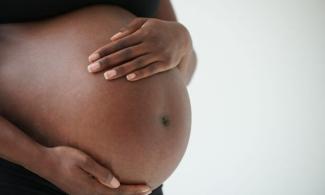
The majority of maternal deaths are caused by severe bleeding, infections, unsafe abortions, and conditions such as HIV/AIDS, all of which can be avoided or treated.
From 2000 to 2020, one woman died every two minutes due to pregnancy or childbirth, according to a World Health Organization (WHO) report published on Thursday.
The majority of maternal deaths are caused by severe bleeding, infections, unsafe abortions, and conditions such as HIV/AIDS, all of which can be avoided or treated.
New data show major setbacks for maternal health in many parts of the world, highlighting stark disparities in healthcare access
“While pregnancy should be a time of immense hope and a positive experience for all women, it is tragically still a shockingly dangerous experience for millions around the world who lack access to high quality, respectful health care,” said Dr Tedros Adhanom Ghebreyesus, Director-General of the World Health Organization (WHO)
“These new statistics reveal the urgent need to ensure every woman and girl has access to critical health services before, during and after childbirth, and that they can fully exercise their reproductive rights,” he added.
According to the report, which tracks maternal deaths on a national, regional, and global scale from 2000 to 2020, there was an estimated 287 000 maternal deaths worldwide in 2020.
This shows a slight decrease from 309 000 in 2016, when the United Nations' Sustainable Development Goals (SDGs) went into effect. While the report shows some significant progress in reducing maternal deaths between 2000 and 2015, gains largely stalled, or were reversed in some cases, after that point.
In two of the eight UN regions – Europe and Northern America, and Latin America and the Caribbean – the maternal mortality rate increased from 2016 to 2020, by 17% and 15% respectively. Elsewhere, the rate stagnated. The report notes, however, that progress is possible. For example, two regions – Australia and New Zealand, and Central and Southern Asia – experienced significant declines (by 35% and 16% respectively) in their maternal mortality rates during the same period, as did 31 countries across the world.
UNICEF Executive Director Catherine Russell said, “For millions of families, the miracle of childbirth is marred by the tragedy of maternal deaths.
“No mother should have to fear for her life while bringing a baby into the world, especially when the knowledge and tools to treat common complications exist. Equity in healthcare gives every mother, no matter who they are or where they are, a fair chance at a safe delivery and a healthy future with their family.”
Maternal deaths continue to be disproportionately concentrated in the world's poorest regions and in conflict-torn countries. Sub-Saharan Africa would account for roughly 70% of all maternal deaths in 2020. Maternal mortality rates were more than double the global average in nine countries facing severe humanitarian crises (551 maternal deaths per 100 000 live births, compared to 223 globally).
“This report provides yet another stark reminder of the urgent need to double down on our commitment to women and adolescent health,” said Juan Pablo Uribe, Global Director for Health, Nutrition and Population at the World Bank, and Director of the Global Financing Facility.
“With immediate action, more investments in primary health care and stronger, more resilient health systems, we can save lives, improve health and well-being, and advance the rights of and opportunities for women and adolescents.”
“It is unacceptable that so many women continue to die needlessly in pregnancy and childbirth. Over 280,000 fatalities in a single year is unconscionable,” said UNFPA Executive Director Dr. Natalia Kanem. “We can and must do better by urgently investing in family planning and filling the global shortage of 900,000 midwives so that every woman can get the lifesaving care she needs. We have the tools, knowledge and resources to end preventable maternal deaths; what we need now is the political will."